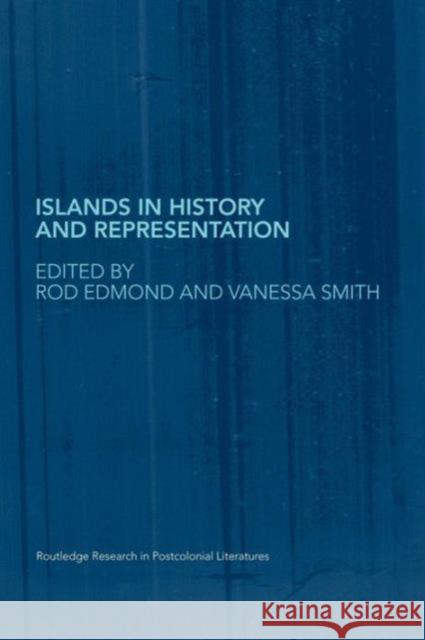Islands in History and Representation » książka
Islands in History and Representation
ISBN-13: 9780415418577 / Angielski / Miękka / 2006 / 252 str.
Islands in History and Representation
ISBN-13: 9780415418577 / Angielski / Miękka / 2006 / 252 str.
(netto: 261,17 VAT: 5%)
Najniższa cena z 30 dni: 261,89
ok. 16-18 dni roboczych.
Darmowa dostawa!
This innovative collection of essays explores the ways in which islands have been used, imagined and theorised, both by island dwellers and continentals. This study considers how island dwellers conceived of themselves and their relation to proximate mainlands, and examines the fascination that islands have long held in the European imagination.
The collection addresses the significance of islands in the Atlantic economy of the eighteenth century, the exploration of the Pacific, the important role played by islands in the process of decolonisation, and island-oriented developments in postcolonial writing.
Islands were often seen as natural colonies or settings for ideal communities but they were also used as dumping grounds for the unwanted, a practice which has continued into the twentieth century. The collection argues the need for an island-based theory within postcolonial studies and suggests how this might be constructed. Covering a historical span from the eighteenth to the twentieth century, the contributors include literary and postcolonial critics, historians and geographers.
This innovative collection of essays explores the ways in which islands have been used, imagined and theorised, both by island dwellers and continentals. This study considers how island dwellers conceived of themselves and their relation to proximate mainlands, and examines the fascination that islands have long held in the European imagination.
The collection addresses the significance of islands in the Atlantic economy of the eighteenth century, the exploration of the Pacific, the important role played by islands in the process of decolonisation, and island-oriented developments in postcolonial writing.
Islands were often seen as natural colonies or settings for ideal communities but they were also used as dumping grounds for the unwanted, a practice which has continued into the twentieth century. The collection argues the need for an island-based theory within postcolonial studies and suggests how this might be constructed. Covering a historical span from the eighteenth to the twentieth century, the contributors include literary and postcolonial critics, historians and geographers.











